From hurler to songwriter: Cathal Fitzpatrick's struggle with alcohol and that performance against the Glen
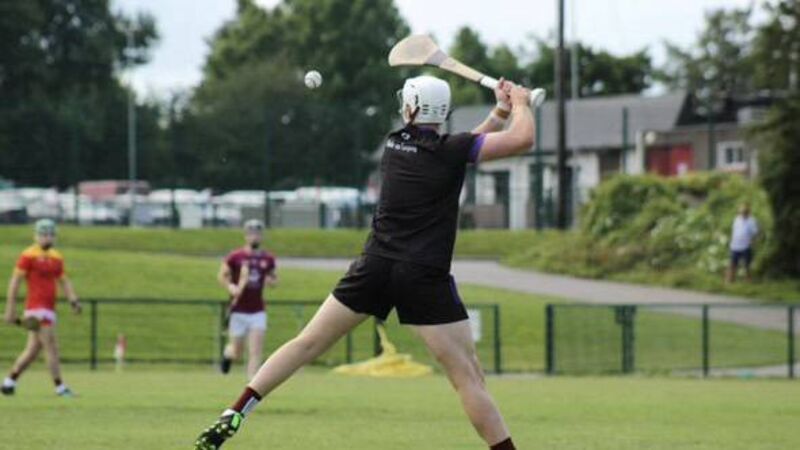
Cathal Fitzpatrick strikes the ball for Bishopstown in a league game against Mallow in 2023.
It’s 3.30am on Sunday, September 3, 2023.
Cathal Fitzpatrick is at home, watching TV. A little odd, given the fact he’s going to be playing against Glen Rovers about 12 hours later in a crucial championship match.
The winner will avoid relegation from Cork’s top hurling grade.
Cathal goes to bed at 4am, wakes up at 11am. The game isn’t really on his mind, as Cathal eats his breakfast.
Championship games don’t come around very often, so he’s going to savour this one.
But that pre-match period wasn’t always so straightforward for the 27-year-old. It was a source of fear, pressure and anxiety.
Three things that had a crushing impact on the mental health of the Bishopstown hurler. Three things that plagued his career as a teenager and young adult.
“I played on two very good minor teams with the Barrs,” he begins. “I found at the time, this was what I really wanted to do, I loved hurling. I loved football.” But his love for the game would quickly be taken from him, by the drug that has decimated this country.
“I was 16 and 17 – obviously like a lot of other young people I was bush drinking, getting served with fake IDs. But when I hit 18, I now had the choice to drink whenever I want.
“I drank whenever I wanted.
“I think when I started college, that’s when the reins let loose a bit.
“I had more freedom, and with the structure to school being different I had more time, and I started partying a lot more than I would have in sixth year.
From there it spiralled.
“I really hate alcohol, I really do.
“I can’t hide behind the fact I hate what it did to me, I hate what it does to families. I hate how it changes people’s behaviours.
“There were moments when I was out when everyone else would want to stop and go to bed. I wanted to keep going,” he admits. “I didn’t want to face the reality that I didn’t know who I was as a person.
“I picked the wrong college course. I was constantly ashamed of myself as a person. Alcohol was an escape from that reality.
“The moment came for me when I was given a choice, and it turned out to be the best decision.
“I could either leave the family home or stop drinking. For a few days I kept drinking. Soon after, I made a mediocre attempt on my life by taking a load of tablets.
“My parents were the most supportive people I could have ever asked for. They got me into Tabor Lodge, Fellowship House. I don’t think there was a conscious decision to stop drinking forever, I was 19 and that was a daunting task.
“I just decided I’ll open up, and when I started telling people what I was thinking, what I was feeling; life got a little lighter."
Cathal had taken a huge step to better his life, something he couldn’t have done without the support of his friends and family. But he still had a long way to go.
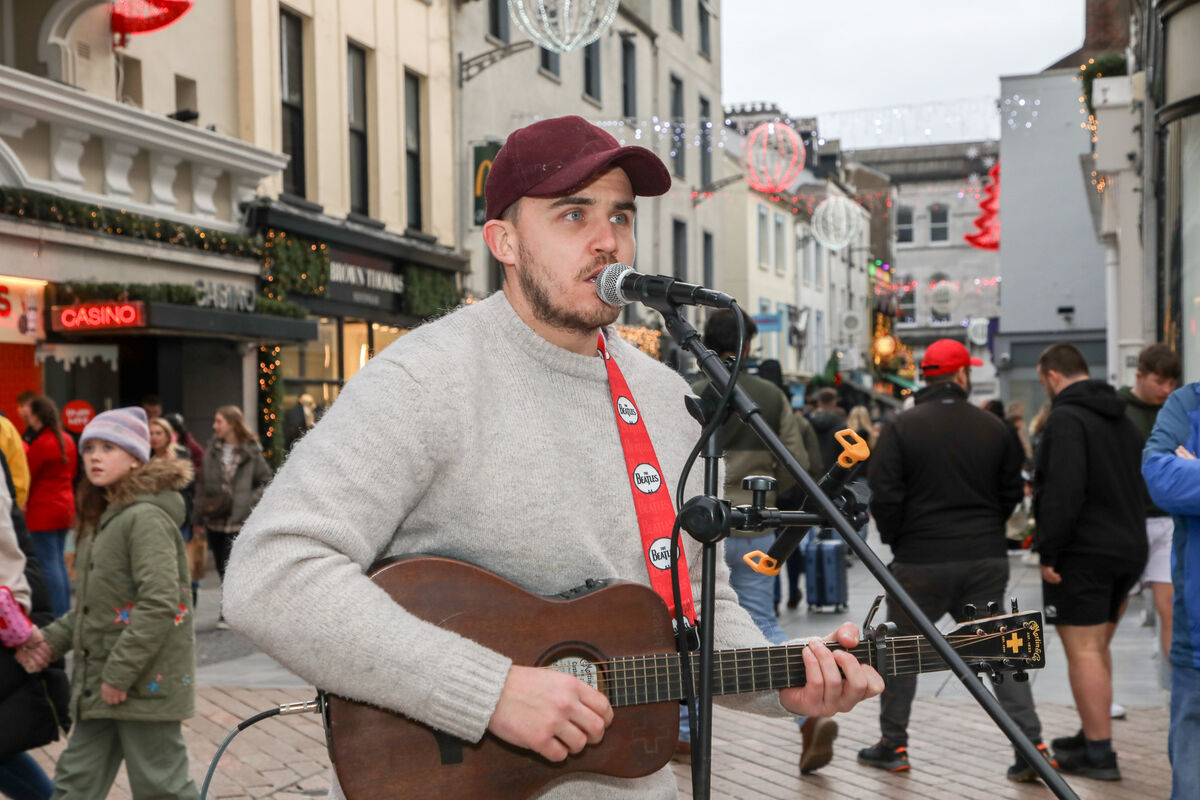
Even though he had stopped drinking, he still struggled with depression and anxiety. After having been on the Cork minor hurling panel, it was a sharp fall for Cathal.
“I hadn’t been given a whole lot of opportunities to play, partly because of being in and out of the scene for so long.
“I needed a fresh start. I remember finishing up playing with the Barrs in 2022, playing Junior C football and Junior A hurling. I felt so dissatisfied.
“There was something in there that always wanted to do more and told me I could do more.
So, Cathal took another big step – and left the club he and his family had always been part of.
But there was still work to be done.
“When I was growing up, I used to struggle with my head quite a lot.
“I remember playing an intermediate football match down in Youghal. This was no one’s expectation or pressure but my own.
“I had it in my head that I can’t make mistakes,” Cathal explains. “I must be the best goalkeeper; my game has to be perfect. I remember making two bad kickouts that led to two bad goals against me.
I remember coming home, nearly suicidal that I had lost that match.
Having been overwhelmed by the pressure to perform for so long – Cathal found a way to stop to it. He did that through sports psychology, working with Anita McGovern.
“She really helped me separate myself as a person from Cathal Fitz the goalkeeper.”
“I decided to move to Bishopstown. They were close neighbours, I went to school in [Coláiste an] Spioraid Naoimh, I knew a lot of the players.
“They were all fantastic. From the second I walked into the dressing room to meet everyone, I knew I was home. I was senior goalkeeper in the first challenge game.
“I had done that work with Anita prior to moving to Bishopstown, so I told myself I’m going to enjoy every game, mistakes are going to happen, but it doesn’t determine if I’m a good or bad person.
“She taught me a good technique; you have the conscious mind and the unconscious mind, so when the ball was up the other end of the pitch, instead of worrying about how I’m going to act, I’d pick something to fixate on.
“So, I’d keep saying ‘ball’ over and over in my head. That would keep my conscious mind active.”
It was an incredibly difficult season for the team. Bishopstown were relegated from the Division 2 Hurling League with seven defeats in nine games.
They were drawn against Midleton, Blackrock and Glen Rovers. The Magpies and Rockies made light work of Cathal’s team. The Glen were expected to do the same.
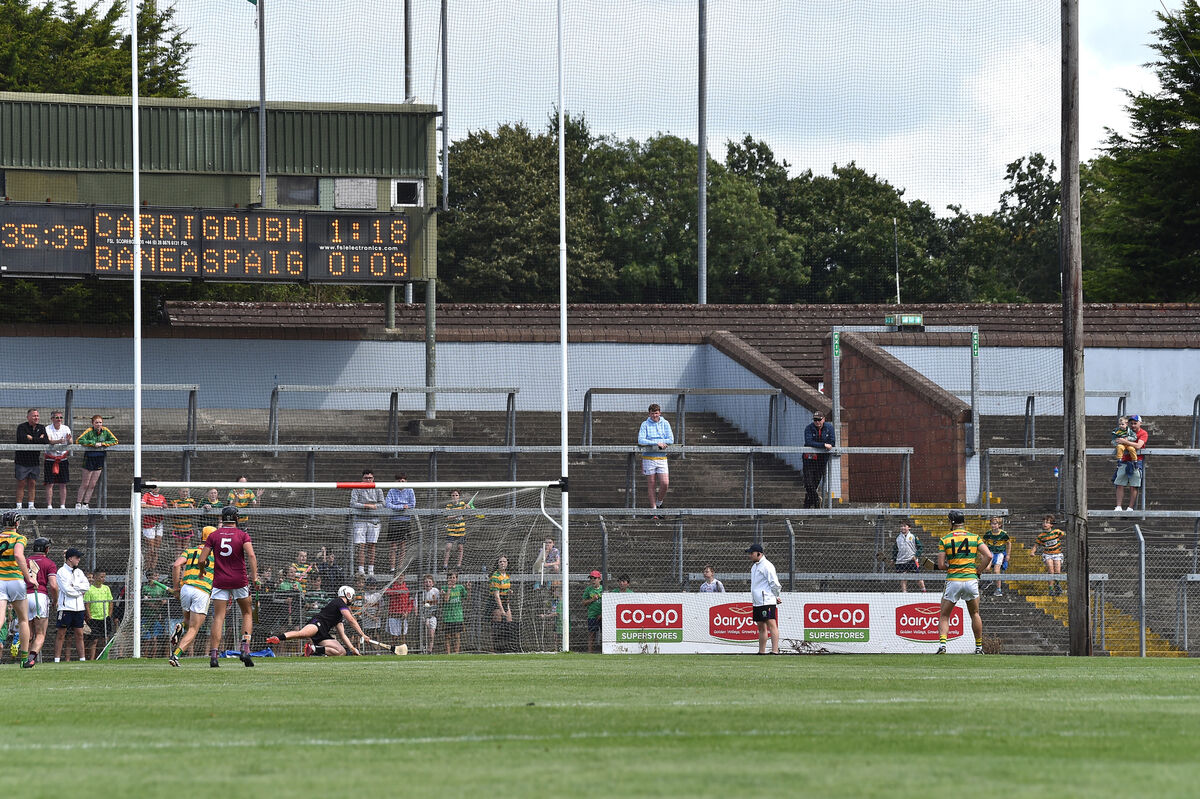
But this time it would be different.
It would be different because if the Glen annihilated Bishopstown, it didn’t make Cathal any less of father, brother, partner or person.
“I remember making a really good save from Dean Brosnan in the first half, and it was instinct.”
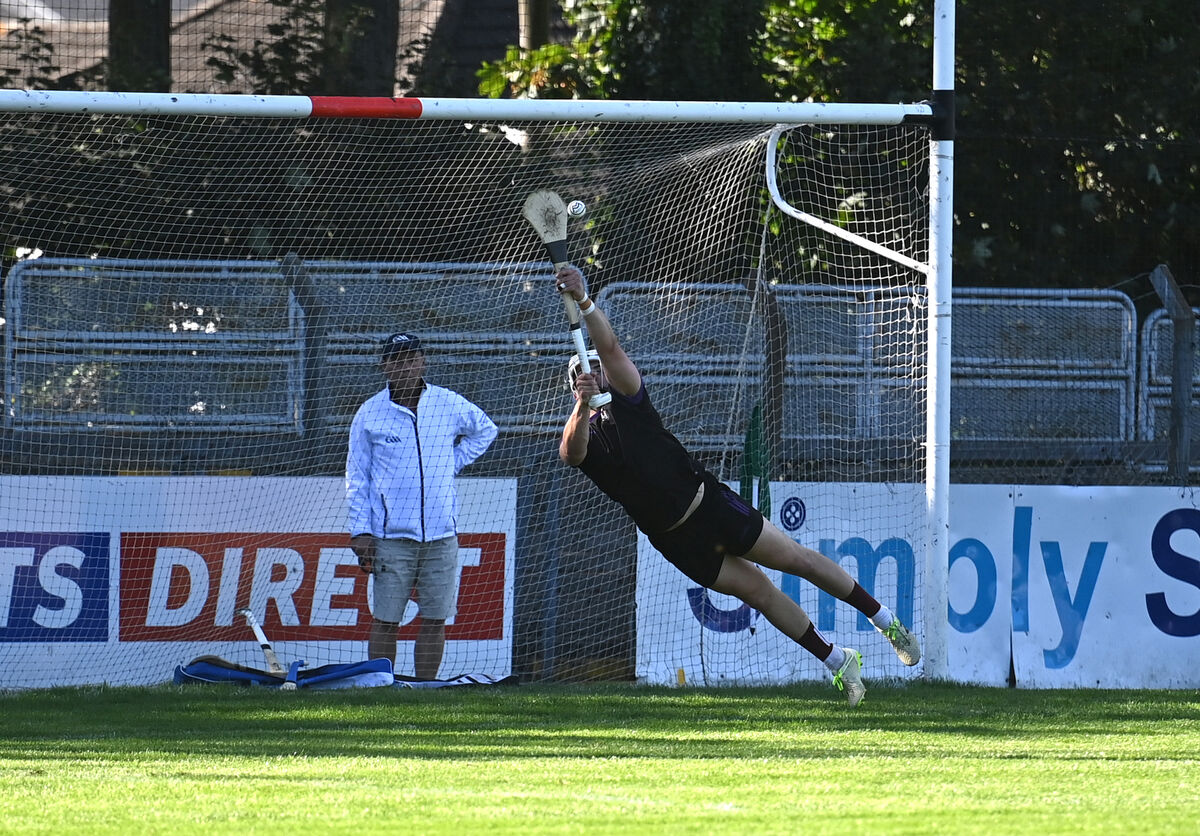
Instinct because he played without that pressure. He still conceded a goal to Brosnan in that first half, and the teams were tied at the break, 1-11 to 2-8. What would follow was one of the most remarkable halves of Cork senior hurling.
The Town somehow found themselves in front after 40 minutes, until 1-2 from one of the all-time greats in Patrick Horgan nudged the northsiders ahead by three with less than 10 to go.
Bishosptown would get to within two points of the Glen.
The final four points of the game would come from an unlikely hero. The man who had been up until 4am watching TV the night before.
“I remember going up to hit those last four frees.
“I decided to block out the noise and the occasion. I just decided this was a ball I was going to put over the bar 100 yards away.
“I surprised myself that the four frees went over,” he remarks. “I remember being emotional in the dressing room after. Somewhere along the line a seed was planted that I wasn’t good enough.
“I wanted to prove to myself that I was mentally strong. I was able to stop drinking, move out at 19, manage bills, have a son, be a good father – this was one other obstacle I wanted to face.
“I remember going from Páirc Uí Rinn straight to a gig and then back to the club after. I remember walking in, people were shouting my name. I gave them a gig for an hour!”
Oh yes – did I not mention that Cathal is also an artist?
After ending his hurling career on the highest of highs – Cathal Fitz turned his attention to music.
“I had struggled for years with depression and anxiety. I went with a different route of self-development and healing.
“I went to a transformational retreat with a psychotherapist a few weeks before that Glen game, and I discovered that my way of dealing with thoughts and feelings was through music.
“I had picked up a guitar when I was younger, but I never really gave it a good whack,” says Cathal. “Eventually I decided to start doing covers in pubs, soon after that I got contacted by an agent to do some cover gigs in Cork.
“From there it’s been a whirlwind. I wrote an album.
“I’ve got that recorded with Claycastle Studios in Youghal. Since then, I’ve been expanding my social media presence with TikTok and Instagram.
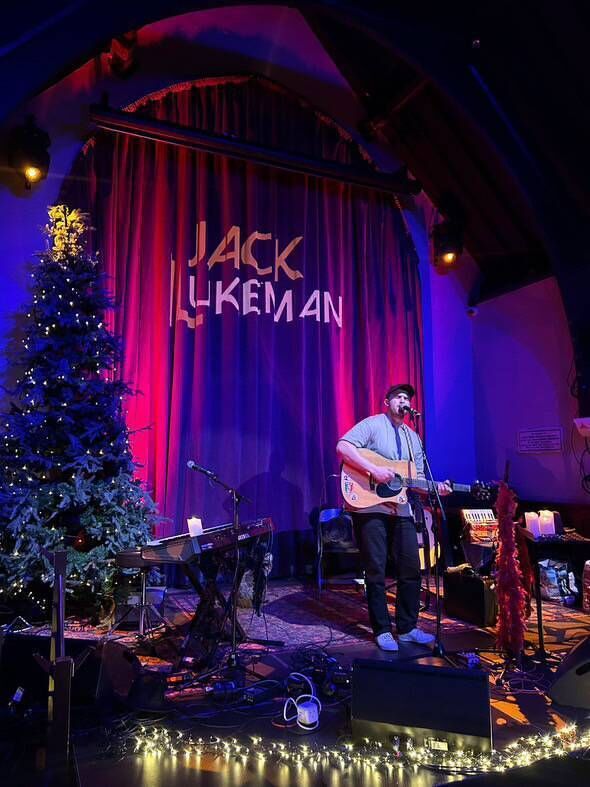
“I’ve opened for Jack L, Jerry Fish. I’ll be opening for Darren Kiely in City Hall in March, and that’s sold out. It’s fantastic.
“I’ve just released my first single on Spotify called Firing Squad, produced by Kealan Kenny. It’s doing quite well. It’s been a very rewarding two years.
“I had certain stigmas about the way a person should be, from the way I grew up. When I took off any limiters I had on myself and decided to be authentically me; I had more energy, and I was happier.
“My plan is to release the album over the next year, try and build a following on Instagram and get my message to people – and one day sell out the Marquee or Three Arena.”

Lofty ambitions – one might think. But backing himself and doing things without outside pressure – that’s how Cathal Fitz has gotten to where he is today.
If he does sell out the Marquee or Three Arena – it certainly won’t be the hardest thing Cathal will have achieved.
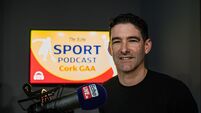
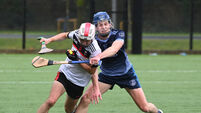
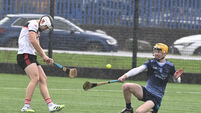

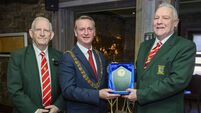

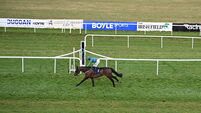



 App?
App?







